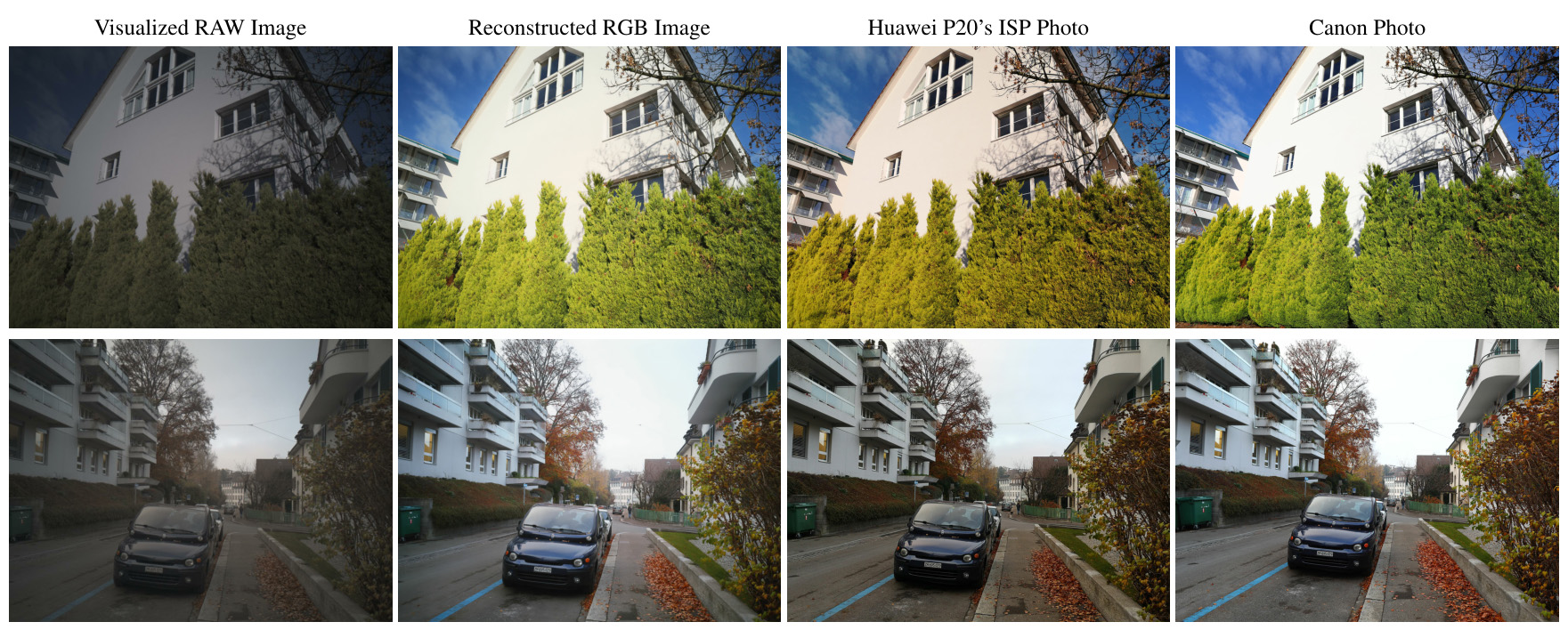Replacing Mobile Camera ISP with a Single Deep Learning Model
As the popularity of mobile photography is growing constantly, lots of efforts are being invested now into building complex hand-crafted camera ISP solutions. In this work, we demonstrate that even the most sophisticated ISP pipelines can be replaced with a single end-to-end deep learning model trained without any prior knowledge about the sensor and optics used in a particular device. For this, we present PyNET, a novel pyramidal CNN architecture designed for fine-grained image restoration that implicitly learns to perform all ISP steps such as image demosaicing, denoising, white balancing, color and contrast correction, demoireing, etc. The model is trained to convert RAW Bayer data obtained directly from mobile camera sensor into photos captured with a professional high-end DSLR camera, making the solution independent of any particular mobile ISP implementation. To validate the proposed approach on the real data, we collected a large-scale dataset consisting of 10 thousand full-resolution RAW-RGB image pairs captured in the wild with the Huawei P20 cameraphone (12.3 MP Sony Exmor IMX380 sensor) and Canon 5D Mark IV DSLR. The experiments demonstrate that the proposed solution can easily get to the level of the embedded P20's ISP pipeline that, unlike our approach, is combining the data from two (RGB + B/W) camera sensors. The dataset, pre-trained models and codes used in this paper are available on the project website.
PDF Abstract


